Straight-faced silence: Is there an omerta on sexuality in the men's pro peloton?
Despite growing LGBTQ+ visibility in other sports, representation in male pro cycling remains entirely absent. David Bradford speaks to British racers and asks, why the stubborn silence?
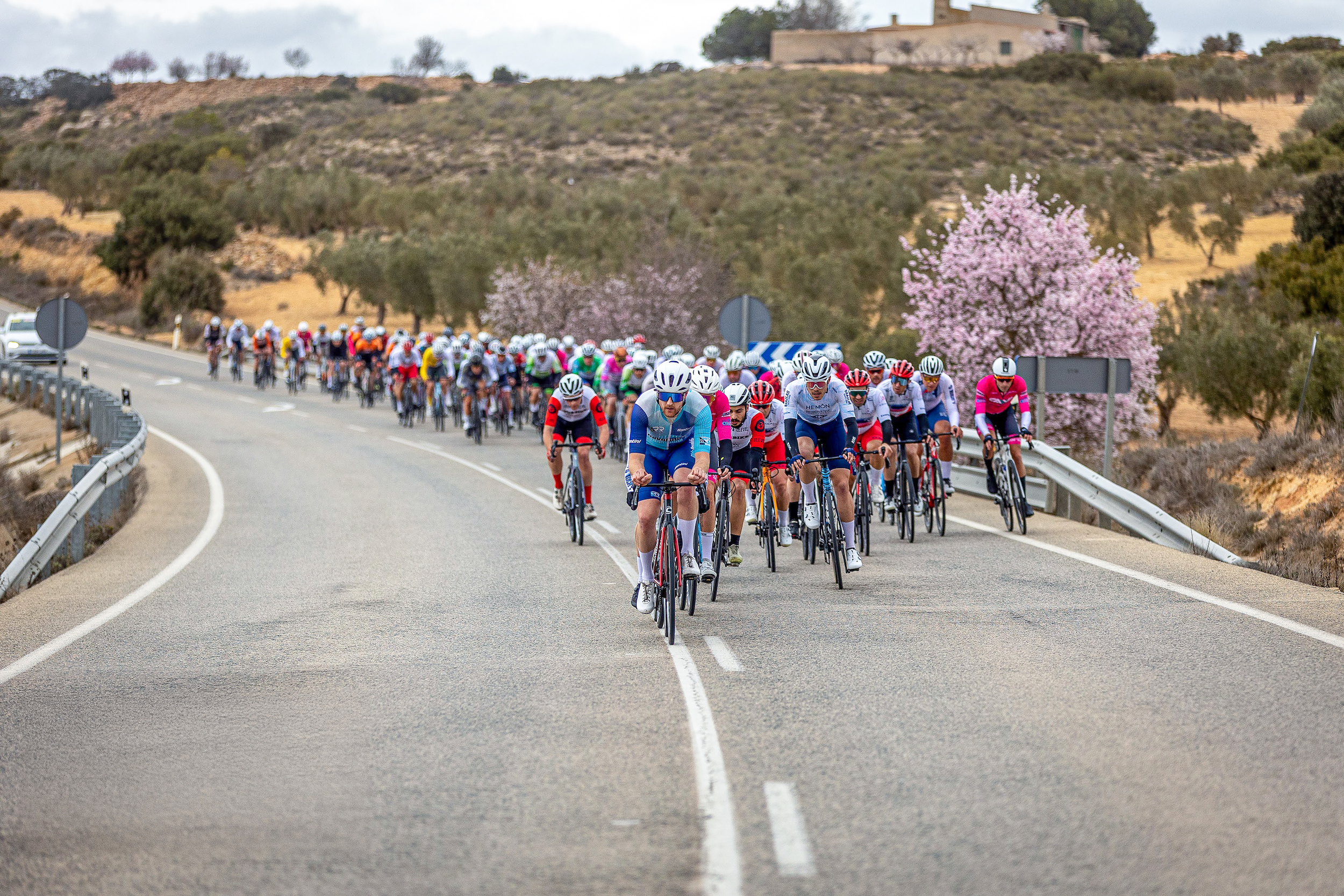
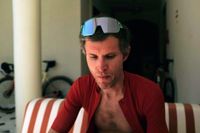
In May 2021, I wrote a feature questioning why, among the more than 900 male cyclists employed on UCI professional teams, not a single one was openly gay or bisexual.
Just weeks earlier, pro BMX rider Corey Walsh had come out as gay, and by October, Australian footballer Josh Cavallo had become the world's first openly gay male professional footballer. The following year, Britain saw its own breakthrough when Blackpool FC's Jake Daniels came out. If even football could open up and accept gay players, surely it was only a matter of time for cycling. Yet here we are four years later and, in male professional road cycling, representation remains stuck at zero.
It is statistically almost impossible that there are no gay pros. The latest sexual orientation data from the ONS indicate that 10.4% of people aged 16-24, and 6.3% of those aged 25-34, identify as lesbian, gay or bisexual. If we apply a conservative estimate of 6% for pro cyclists - most of whom fall within the above age range - at least 50 male pros are gay or bi. Yet not one has revealed it publicly.
There has been one watershed event. Just two months after my feature – Why is the peloton hiding its true colours? – was published, British elite rider Clay Davies came out as gay in an interview with the website British Continental. He explained that he had decided to tell team-mates about his sexuality five years earlier - only after a near- fatal accident in which he was hit by a car and trapped beneath its wheels, breaking both arms.
"It took quite literally nearly dying for me to reveal my sexuality," he said. For the past two years, Davies, who is 32, has been the country's number-one ranked elite rider - at amateur level, he is as high a profile figurehead as we could hope for. I wanted to catch up with Davies and ask him whether, like me, he had hoped a male pro rider or two might follow his lead and break what is effectively a sexuality omerta.
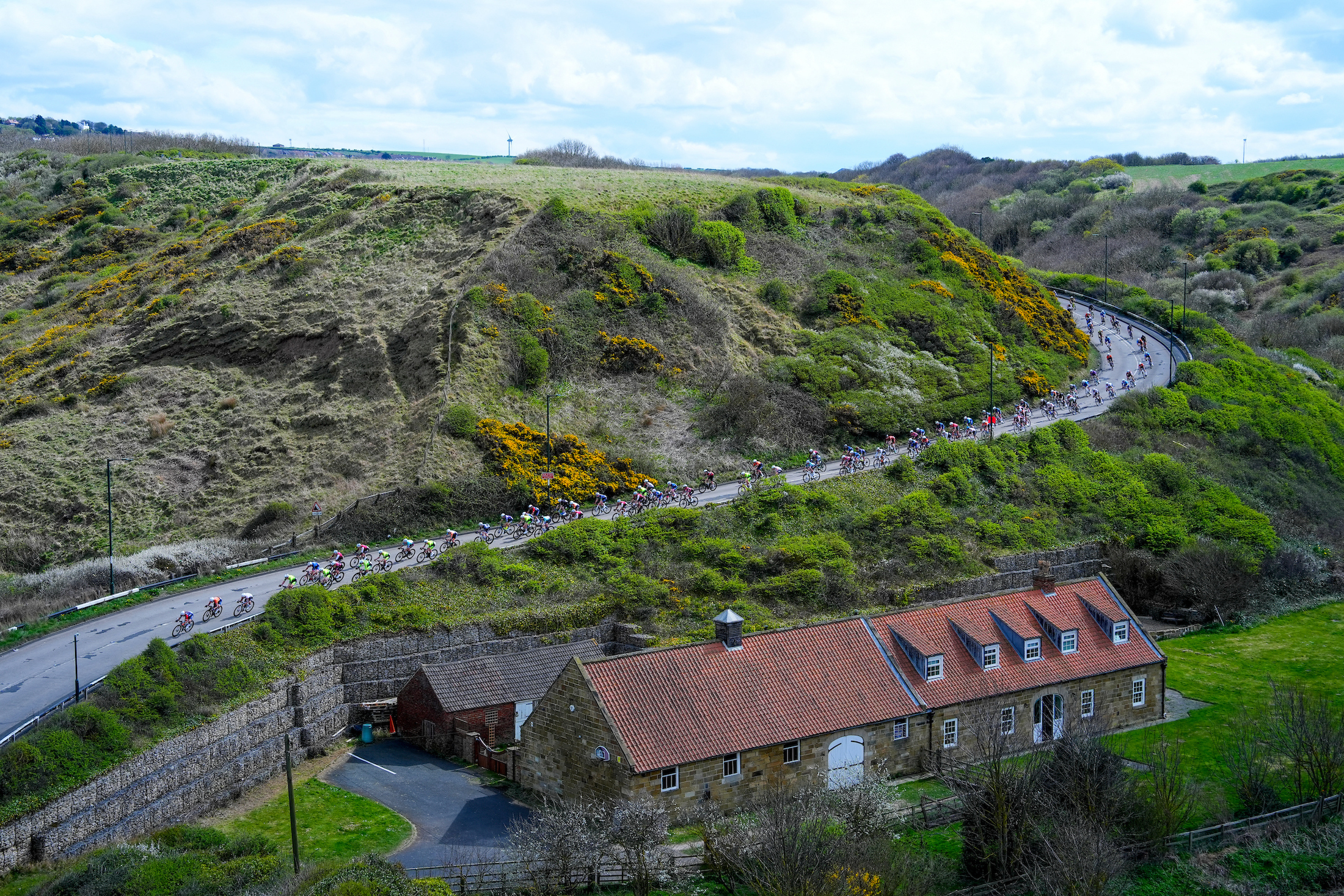
The East Cleveland Classic opens British Cycling's 2025 National Road Series
"Two things have happened in cycling to prevent it," he tells me by video call from the sunny garden of the Spanish hotel where he is on a two-week training break. "First, you've got the rise of teams sponsored by states where being gay is illegal or even subject to the death penalty."
This is an important point: in the UAE, the state that sponsors the world's top-ranked team, gay sex can carry a prison sentence of up to 14 years. "Secondly," continues Davies, "the bike industry is in dire straits, so anything non-essential has been pushed down the priority list."
The latest race content, interviews, features, reviews and expert buying guides, direct to your inbox!
Davies believes there are gay men in the World Tour but that they keep quiet about their sexuality for fear of jeopardising their career prospects. "I imagine they are out within their teams, almost entirely," he says, "but feel they can't go public because of the attention it would bring." He sympathises with their predicament. "The training as a WorldTour rider is f****ing hard."
The final frontier
Cycling may be far more LGBQ-inclusive these days - but what about the T? With trans inclusion an ever more politicised and polarised issue, what is the lived experience of a trans cyclist in Britain?
We spoke to 50-year-old Farrah Herbert to find out. "I'm very lucky to be London- based, meaning I was able to join LGBTQ+ cycling club Lan Riders, who have been nothing but welcoming. I'm a ride captain for them now, leading group rides, and I recently completed Ride Across Britain. My experience in cycling - apart from not being allowed to compete - is 100% positive.
"It's so disappointing that cycling's governing bodies have taken a bigoted stance, claiming that trans riders have an unfair advantage [British Cycling and CTT policies prohibit anyone assigned male at birth from competing in the female category] - but where is the proof? They have no scientific proof.
My body has not produced testosterone for 10 years, and I know I haven't got an advantage because I ride with cis women and they beat me all the time! "As a rule, trans people don't do sports, so we need to try to promote and encourage more trans and non-binary cyclists. Women in general are underrepresented in cycling, let alone trans women.
"The media tells trans people we're not welcome in sport. We need more LGBTQ-friendly clubs across the country, and for regular clubs to make it clear that everybody is welcome. Just a progress symbol on their website can make a huge difference."
To add to the stress with that sort of media attention they just won't have the mental capacity for it." In that landmark interview in 2021, Davies revealed that he was suffering from depression "almost certainly as a result of being in the closet for so long.
"Did opening up, in shedding that burden, also lift the limits on his cycling performance? "It probably did, as I'd had a lot going on in my head," he says. "There was a bit of weirdness to begin with, but now I'm probably one of the best known cyclists in the country." His point: at this stage, everyone knows, so there's nothing left to fear.
What did that initial "weirdness" amount to? "I got literally hundreds of messages-100% supportive apart from one message from an elite team owner saying something along the lines of 'I don't see what all the fuss is about'." From his competitors in and around races, Davies has not been subjected to any homophobic comments since coming out.
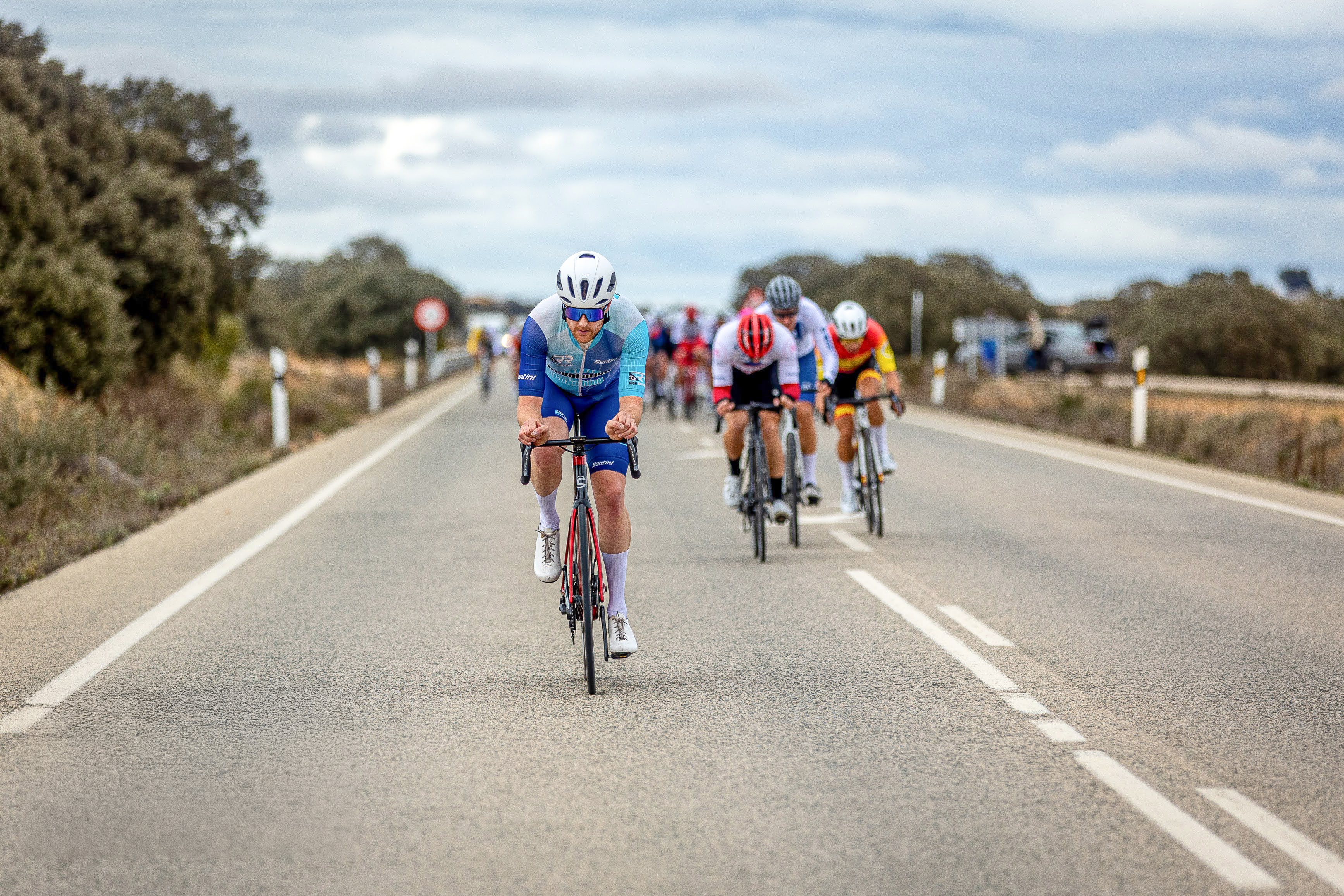
Clay Davies is open about his positive experience within the peloton
"My boyfriend David comes to most races," he says. "I don't hide anything. The generation that used to make sly comments have all gone now." It's an encouraging shift - but I wonder if Davies's experience is universal, or if his competitive stature acts as a kind of forcefield. He tells me he is in contact with "about 10" other gay or bi male racers, four of whom compete "at a decent level" - and agrees to ask if any would be willing to speak to me for this feature.
In the meantime, through the inclusive cycling club Ldn Riders, I make contact with Greg Speakman, a 28-year-old gay man who over the past few years has raced prolifically and now holds a second-cat licence. "I've never had any negative comments while racing on the domestic scene," he tells me, corroborating Davies's upbeat assessment.
"The only negative views I've heard have come from older people in club culture, fossils who were just as misogynistic as they were homophobic." In his day job, Speakman serves as an LGBTQ+ liaison officer for Thames Valley Police, so he has more insight than most into the impact of homophobia, not just in sport but across society.
"My job probably gives me a thicker skin," he reflects, "but even so, negative comments still have an impact, at least subconsciously." Does he fear a slipping back, an unravelling of progress? "I've sensed it on social media, mostly coming from Trump's America," he says. "You can't ignore that, and it's something to be wary of for the future, but I'm still optimistic we're taking steps forward overall."
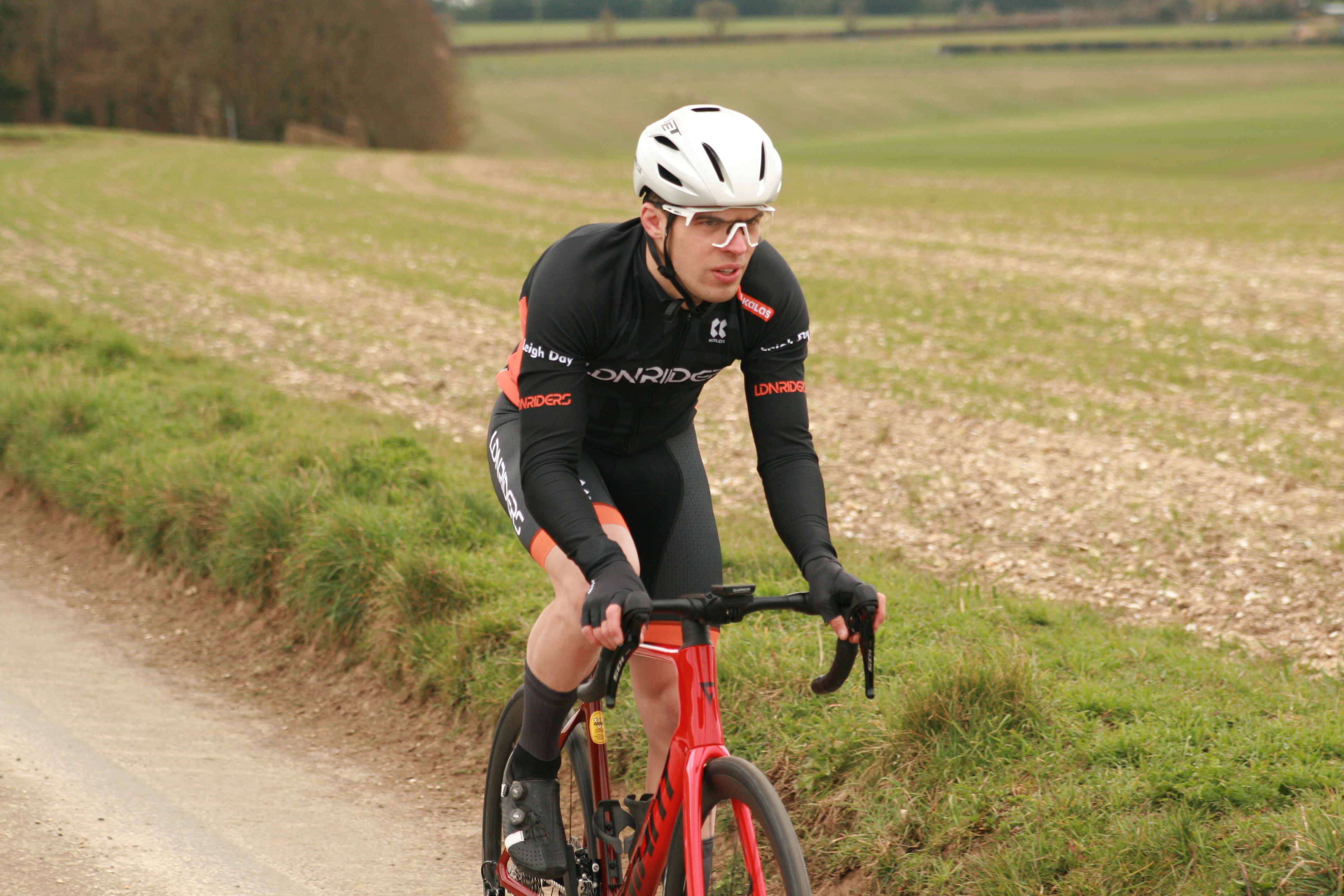
Greg Speakman is part of the inclusive club LDN Riders
Making sure this progress extends to cycling means, in Speakman's view, keeping up the push for LGBTQ+ visibility with initiatives and events that make it known that all sexualities and gender identities are welcome. In his assessment, do fears around a lack of acceptance deter LGBTQ+ riders from signing up to clubs and races? "Absolutely, yes. Unlike in team sports with openly gay leagues, it's harder to find like-minded people and role models in cycling."
There is no deterring him, though - his 2025 race schedule is already filling up. "My main aim in racing this year," he grins, "is to get more Ldn Riders clubmates involved. I'll keep saying it-come and have a go!" Two weeks pass, then a WhatsApp message arrives from Davies telling me that one of his LGBTQ+ contacts has agreed to speak on condition of anonymity. The rider, whom we'll refer to as Jack (not his real name), is in his early-20s and competes at the sharp end of amateur road racing. After messaging him, I hear nothing back for a full day and begin to suspect he has had second thoughts. But then he responds, agreeing to a video call.
Mindful of his wish to remain anonymous, my first question is whether Jack is 'out' to his friends and team-mates. "It's quite dependent," he pauses. "There are some riders I've told, and none of them have reacted badly, but I'm very selective." Jack explains that in the training environments of his youth and junior days, "homophobic slurs were thrown around" frequently, uncensured by coaches.
Since graduating into the senior ranks, he has witnessed far fewer such comments - with one striking exception. "There was an instance mid-race when a bi lad was called a f*****t by another rider in the bunch. It was enough to put him off cycling - he doesn't race anymore." It's a graphic reminder of the impact of homophobic abuse, and I begin to understand why Jack is cautious about revealing his identity as a queer man.
Then again, given his awareness of Davies's positive experience, what exactly is holding him back? "I knew you were going to ask me that," Jack says with a shy smile. "Nothing stops me - I just don't feel the need." He hesitates. "I don't know... I guess I'm just in a good place now." His faltering response seems to hint at an inner conflict. Then, unprompted, he adds, "I guess it's kind of selfish, in a way, because if I were open, it might help others coming up. But once you do it, there's a big label over you."
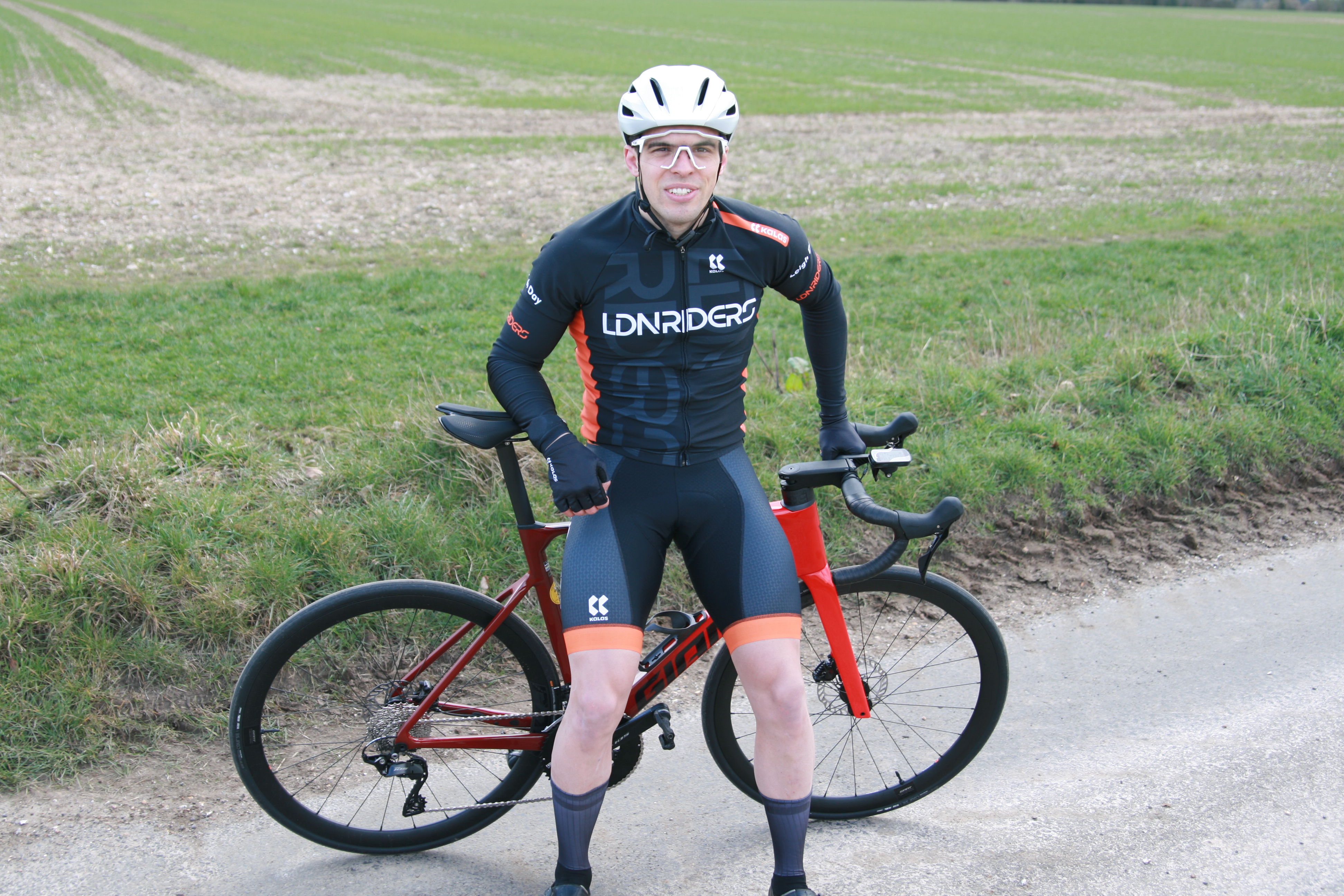
That label, he worries, would bring expectations and scrutiny, making it harder, as he puts it, "just to be myself everywhere". Acknowledging that he is more open and less guarded around his university friends, Jack sketches what sounds like a compartmentalised life - shifting between identities depending on who he is with, perhaps a habit shaped more by necessity than choice.
I mention how Davies told me his parents had always been so relaxed about sexuality that he never felt the need to come out to them. When I ask Jack if his family have been similarly accepting, his answer is quiet but firm: "My parents don't know," he says, casting a stark new light on his reluctance to be named in this piece.
Isn't this the real reason, or at least the biggest one? "Yeah, that would also be a bit awkward," he says, letting out a nervous laugh. Does he think they would react badly, or is he just not ready to tell them? "Both," he replies. "I've sat with them enough times in front of the TV when a gay character comes on-it's not a great response."
His tone is matter-of-fact, but the implication is heavy. It's a quiet, sobering reminder that while cycling is becoming broadly more welcoming for LGBTQ+ people, the same cannot always be said for the places they call home.

Thank you for reading 20 articles this month* Join now for unlimited access
Enjoy your first month for just £1 / $1 / €1
*Read 5 free articles per month without a subscription

Join now for unlimited access
Try first month for just £1 / $1 / €1
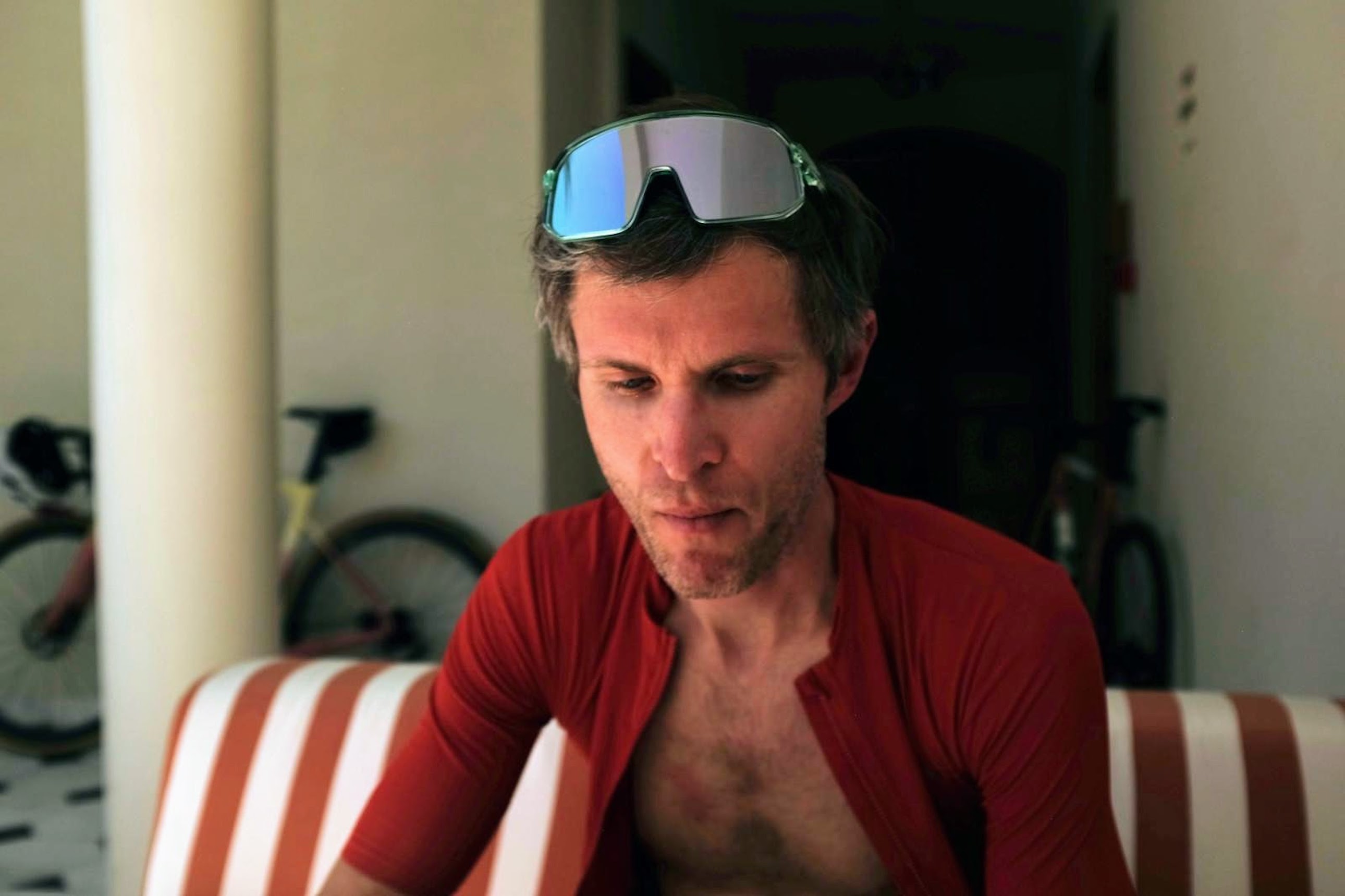
David Bradford is senior editor of Cycling Weekly's print edition, and has been writing and editing professionally for 20 years. His work has appeared in national newspapers and magazines including the Independent, the Guardian, the Times, the Irish Times, Vice.com and Runner’s World. Alongside his love of cycling, David is a long-distance runner with a marathon personal best of 2hr 28min. Diagnosed with retinitis pigmentosa (RP) in 2006, he also writes personal essays exploring sight loss, place, nature and social history. His essay 'Undertow' was published in the anthology Going to Ground (Little Toller, 2024).
You must confirm your public display name before commenting
Please logout and then login again, you will then be prompted to enter your display name.